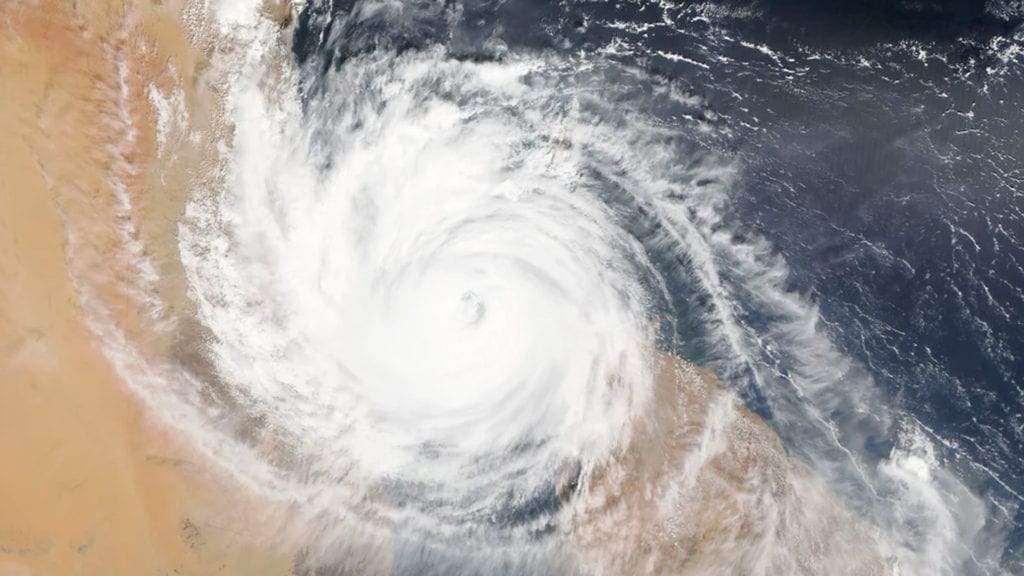While one of the few bright spots in news about COVID-19 was the positive impact that stay-at-home measures had on the environment, scientists are still expecting a busy hurricane season. Case in point: its early June, and we’re already three storms in.

As a third-generation Floridian, I feel pretty confident in my ability to prepare for a disaster—it’s why I started quietly gathering supplies before consumer panic really ramped up in the U.S. around COVID-19. Still, I have to wonder how social distancing guidelines, which are expected, with regional variations, to stay in place through the fall, are going to make preparing for and recovering from hurricanes different this year.
In May, various government agencies released guidance—FEMA, the CDC, and the FTC to name a few—to help companies and individual citizens prepare for storm season in our new normal. As we continue to help out clients prepare, here are a few things we recommend thinking about, along with questions you should be ready to address with media and other stakeholders:
Populations displaced by storms may be at increased risk of exposure to COVID-19.
While in temporary housing, where social distancing, isolation and proper hygiene are more difficult. The CDC has released guidelines for staying safe in shelters in light of COVID-19, but questions remain:
- What will be in place to help minimize risk for those who may have to move to shelters in advance of a storm or whose homes are destroyed?
- Will shelters have increased cleaning, their own supply of masks and gloves, etc.?
- Will shelters do temperature checks or rapid testing prior to allowing people in, and/or will they have separate space for those that show COVID-19 symptoms?
Municipalities and businesses are under significant financial strain already this year.
While FEMA’s disaster relief fund is higher than normal going into hurricane season, thanks to boosts from multiple coronavirus stimulus packages, the estimated costs of a major hurricane could still deplete those funds.
- What resources will be available specifically to help municipalities and local businesses prepare for and recover from storms?
Hospitals in many areas are already overwhelmed and have had to shift recourses.
- Are hospitals prepared to treat those who may have been harmed in storms while they may still be working to treat patients suffering from COVID-19?
- How will they quickly and easily keep patients separate when there are increased numbers coming in with injuries following a storm?
- Do hospitals have backup power to keep critical operations, like ventilators, running?
Small businesses have been hit hard by COVID-19.
- Will those that have been financially impacted by COVID-19 have the resources to rebuild if their physical properties are damaged by a storm?
- Will small businesses seek federal assistance or look elsewhere for support?
Retailers and grocers are often swarmed by shoppers who have a limited amount of time to stock up before a storm hits.
Stores have recommended customers stock up early and order ahead, but it’s inevitable that many will still wait to get supplies before a hurricane hits.
- As people flock to stores, how do you balance social distancing requirements; product shortages or limits on the number sold; and reduced hours with increased foot traffic and demand?
CPG companies were some of the first to have to address product shortages due to COVID-19 increasing demand for cleaning products and paper goods.
- How will CPG companies ensure adequate supply of these items, which are storm preparation items in many homes, but are already in short supply because of increased demand due to the pandemic?
Destinations around the world and the travel and hospitality industries have suffered financial hits as business and leisure travel ground to a halt.
- What will be the likely financial impact of a bad storm season to spots in the Caribbean and Southeastern US that have already been negatively impacted by COVID-19? What challenges will countries that depend on tourism have in financing recovery efforts?
- In anticipation of travel restrictions lifting, the hospitality industry has been developing new standards to keep properties as clean as possible and guests and staff safe. How will properties ensure enhanced cleaning and safety measures can stay in place if they lose power and/or running water for an extended period?
There are many considerations that will be unique and different for the 2020 hurricane season in the U.S. If you have questions about what you can do to make sure you’re ready to communicate when a storm does arrive, we’re here to help.



